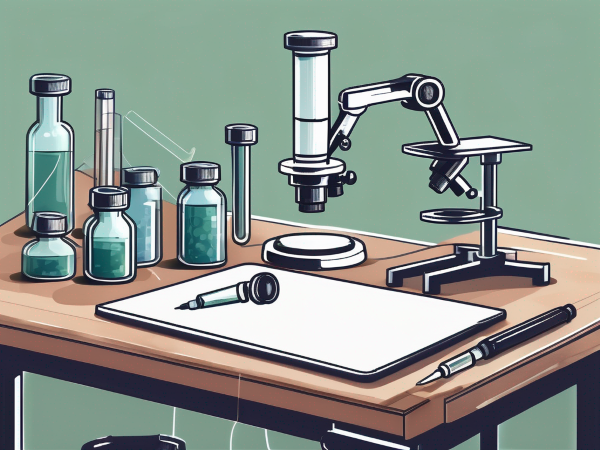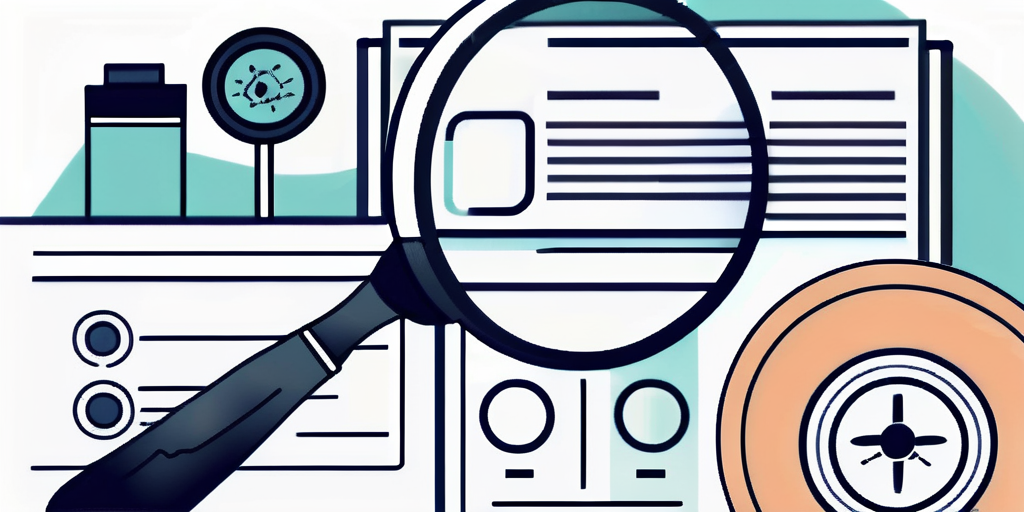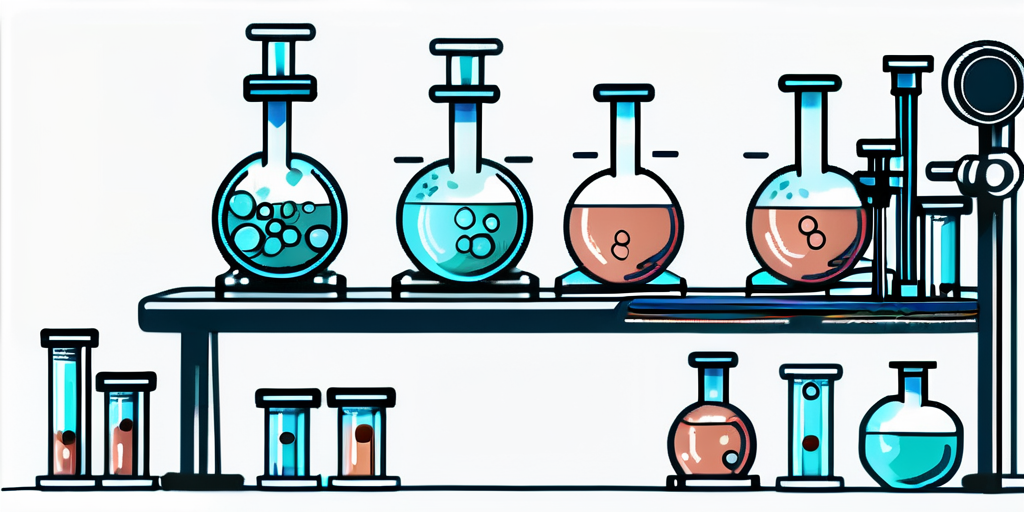
Quick CV Dropoff
Send us your CV

Are you interested in a career in the pharmaceutical industry? Are you detail-oriented and passionate about ensuring the quality and safety of pharmaceutical products? If so, a quality assurance job in the pharmaceutical industry might be the perfect fit for you. In this comprehensive guide, we will explore the ins and outs of quality assurance jobs in the pharmaceutical industry, including the role of quality assurance professionals, the different types of quality assurance jobs available, the required skills and qualifications, and tips on how to navigate the job market and prepare for a career in pharmaceutical quality assurance.
The pharmaceutical industry is highly regulated, and ensuring the quality and safety of pharmaceutical products is of utmost importance. This is where quality assurance comes into play. Quality assurance in the pharmaceutical industry involves the processes and systems put in place to ensure that pharmaceutical products meet a certain standard of quality and safety.
The role of quality assurance in the pharmaceutical industry is crucial. Quality assurance professionals are responsible for developing and implementing quality standards, policies, and procedures to ensure that pharmaceutical products are manufactured, tested, and released in compliance with regulatory requirements. They play a vital role in ensuring the quality, safety, and efficacy of pharmaceutical products.
Quality assurance professionals in the pharmaceutical industry have a wide range of responsibilities. Their main duties include developing and implementing quality management systems, conducting audits and inspections, reviewing and approving standard operating procedures, and ensuring compliance with regulatory requirements. They also play a key role in investigating and resolving quality issues and implementing corrective actions to prevent reoccurrence.
Another important responsibility of quality assurance professionals is to stay up-to-date with the latest industry trends and regulatory changes. This involves continuously monitoring and analyzing new regulations, guidelines, and best practices to ensure that the quality assurance processes and systems are in line with the current standards. By staying informed, they can proactively adapt and improve the quality assurance practices to meet the evolving requirements of the pharmaceutical industry.
In addition to their regulatory compliance role, quality assurance professionals also contribute to the overall efficiency and effectiveness of the pharmaceutical manufacturing process. They work closely with other departments, such as research and development, production, and quality control, to identify areas for improvement and implement quality enhancement initiatives. By collaborating with cross-functional teams, they can streamline processes, reduce waste, and optimize resource utilization, ultimately leading to improved productivity and cost savings.

In the pharmaceutical industry, there are various types of quality assurance jobs available. Let's take a closer look at some of these roles:
A quality assurance analyst is responsible for conducting quality control tests, analyzing data, and generating reports to assess the quality and consistency of pharmaceutical products. They work closely with other departments, such as research and development, manufacturing, and regulatory affairs, to ensure that products meet quality standards.
For example, a quality assurance analyst may be tasked with performing tests on drug samples to check for impurities, ensuring that the product is safe and effective for patients. They meticulously analyze the test results, looking for any deviations from the expected standards. By identifying any issues, they can recommend improvements to the manufacturing process or suggest changes to the formulation to enhance product quality.
A quality assurance manager supervises the quality assurance team and oversees the development and implementation of quality management systems. They are responsible for ensuring that all processes and procedures are in compliance with regulatory requirements and industry standards. They also play a key role in training and mentoring quality assurance staff.
In addition to their managerial responsibilities, quality assurance managers are often involved in conducting audits and inspections to assess compliance with regulations. They collaborate with regulatory agencies to ensure that the company's practices align with current guidelines. Furthermore, they may lead cross-functional teams to investigate and resolve any quality-related issues that arise during the manufacturing process.
A quality assurance director is responsible for setting the overall quality strategy and direction for an organization. They ensure that quality goals are aligned with business objectives and regulatory requirements. They also provide leadership and guidance to the quality assurance team, and are responsible for ensuring continuous improvement in quality systems and processes.
As a quality assurance director, they establish quality metrics and key performance indicators (KPIs) to monitor the effectiveness of quality programs. They collaborate with senior management to develop and implement quality initiatives that drive operational excellence. Additionally, they stay up-to-date with industry trends and advancements in quality assurance practices, ensuring that the organization remains at the forefront of quality standards.
These are just a few examples of the different types of quality assurance jobs in the pharmaceutical industry. Each role plays a crucial part in ensuring that pharmaceutical products meet the highest standards of quality, safety, and efficacy.
If you are considering a career in pharmaceutical quality assurance, there are certain skills and qualifications that are essential to succeed in this field.
Most quality assurance jobs in the pharmaceutical industry require a bachelor's degree in a science-related field, such as chemistry, biology, or pharmaceutical sciences. Some positions may also require a master's degree or a Ph.D. in a relevant field. It's important to have a strong educational background to understand the scientific and regulatory aspects of the pharmaceutical industry.
In addition to the educational requirements, there are certain skills that are essential for success in quality assurance jobs. Attention to detail and strong analytical skills are crucial for conducting quality control tests and analyzing data. Strong communication and interpersonal skills are also important, as quality assurance professionals need to collaborate with other departments and communicate effectively with stakeholders. Good problem-solving and decision-making skills are essential for identifying and resolving quality issues.
Once you have identified job opportunities and are ready to pursue a career in pharmaceutical quality assurance, there are a few things you can do to better prepare yourself.

Relevant experience is essential when applying for quality assurance jobs in the pharmaceutical industry. Consider internships, co-op programs, or entry-level positions in the industry to gain practical experience and knowledge of pharmaceutical manufacturing processes and regulatory requirements. This will enhance your resume and make you a more competitive candidate.
To stay competitive and advance your career in pharmaceutical quality assurance, it's important to continue your education and stay updated on the latest industry trends and regulations. Consider pursuing additional certifications, such as the Certified Quality Auditor (CQA) certification offered by ASQ, to enhance your skills and qualifications.
Ready to embark on a challenging yet immensely rewarding career journey in pharmaceutical quality assurance? This field offers a unique opportunity to uphold the highest standards of quality and safety in pharmaceutical products. By immersing yourself in understanding the pivotal role of quality assurance professionals, exploring the diverse array of quality assurance jobs available, and diligently developing the necessary skills and qualifications, you can pave the path for your success in this dynamic industry.
Contact us today to explore opportunities and kickstart your journey towards making a meaningful impact in pharmaceutical quality assurance.